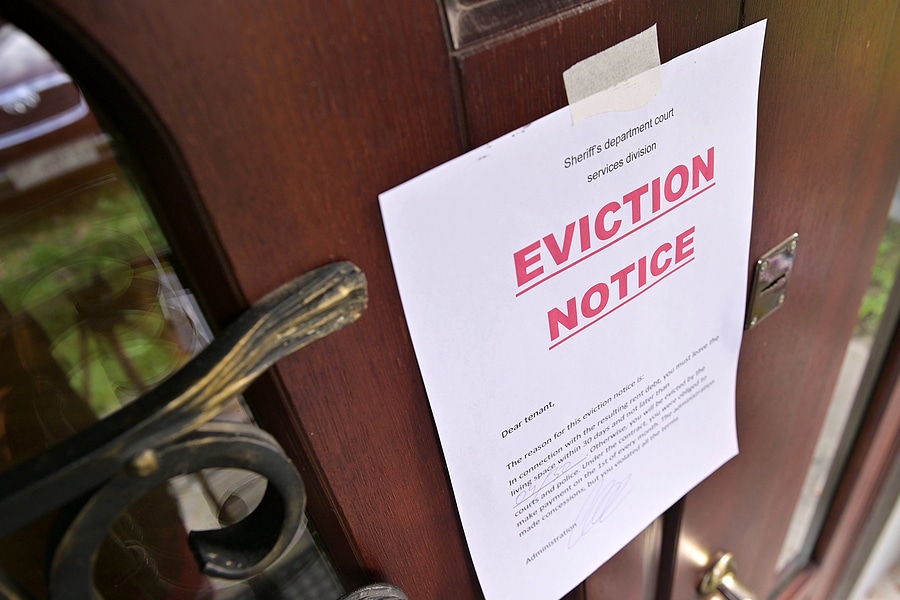What New York Landlords Need to Know About the ‘Good Cause’ Law

The following article is a guest post by Janet Nina Esagoff, Esq.
Property owners and managers, take heed. New York State enacted the “Good Cause” Eviction Law (“GCL”) on April 20, 2024, effective immediately. Now, landlords have more restrictions in seeking to evict tenants from residential units. The law also includes caps on rent increases and requires lease renewals. As an offset in landlords’ favor, consideration will be granted for certain operating expenses, such as property tax increases and cost of major repairs.
It’s a lot to process, so let’s dive in.
‘Good Cause’ Evictions
Under GCL, unless an exemption applies, landlords must show good cause to evict other than the usual “holdover” or “non-payment” paradigm. GCL defines the following as “good cause”:
- Non-payment of a reasonable rent
- Violation of a substantial obligation of the tenancy
- Nuisance
- Malicious or grossly negligent substantial damage to the premises or building
- Occupancy is in violation of law and an order to vacate has been issued, unless the condition is created by the landlord, through neglect or otherwise
- Illegal use of the premises
- Unreasonable refusal of access for necessary repairs
- Owner occupancy as principal residence
- Demolition
- Withdrawal from the rental housing market
- Failure to agree to reasonable changes to a lease
GCL further requires that, even upon showing good cause, a landlord must obtain a court order to remove a tenant. As with NYC rent stabilization laws, a tenant may not waive their right to GCL protections.
Rent Increase Caps
A rent increase is presumed “unreasonable” if it exceeds either the inflation index or 10%, whichever is lower. For New York City, the inflation index is defined as 5% plus the annual percentage change in the consumer price index for all urban consumers for all items as published by the United States Bureau of Labor Statistics for New York-Newark-Jersey City.
However, this unreasonable increase presumption is rebuttable and, when determining whether a rent increase is unreasonable, a court must consider property tax expenses and any increases thereto, as well as completed “significant repairs,” outside of repairs required for basic maintenance by landlord. Significant repairs are defined as the replacement or substantial modification of any structural, electrical, plumbing, or mechanical systems or abatement of hazardous materials, including lead paint, mold, or asbestos, but not cosmetic improvements, such as painting, decorating, or minor repairs.
Good Cause Notice Requirements
Going forward, all initial leases and renewal leases, as well as any notices and petitions, for all apartments in New York City (and any other localities that opt in) going forward must include the “Good Cause Eviction Law Notice,” the form of which is provided for in Section 231-c of the law. If the unit is exempted from GCL, the notice must identify the applicable exemption.
Exempted Housing Accommodations
GCL is expansive and applies to “all housing accommodations.” However, the law includes several critical exemptions—most notably, small landlords, who own 10 units or fewer within NYS and owner-occupied buildings that contain 10 units or fewer. Other exemptions include the following:
- Units with a monthly rent that is greater than 245% of the fair market rent (above $5,846 for a studio; $6,005 for a one bedroom; $6,742 for a two bedroom; and $8,413 for a three bedroom), as published annually by the United States Department of Housing and Urban Development (HUD), or the percent of the fair market rent as established by jurisdictions that have opted into the law
- Units already subject to rent regulation pursuant to local, state, or federal law, rule, or regulation
- Units that are required to be affordable for certain income levels pursuant to statute, regulations, restrictive declarations, or regulatory agreements with a local, state, or federal government entity
- Units on or within a building that is owned as a condominium or cooperative, or on or within a building that is subject to an offering plan submitted to the office of the attorney general
- Buildings for which a Temporary Certificate of Occupancy or Permanent Certificate of Occupancy was issued after January 1, 2009, for a period of thirty years following the issuance of the certificate
In addition, the requirements of GCL do not apply to sublets, where occupancy is incident to employment, to seasonal use units, units within hospitals, manufactured homes, hotel rooms or other transient uses, dormitories, or units within religious facilities or institutions.
We anticipate that GCL will dramatically alter the rental housing landscape in New York City and potentially the state, as other villages, towns, or cities statewide opt in.
GCL’s impact is broad and significant, so property owners and management are well advised to seek counsel. For more information, please contact Janet Nina Esagoff, Esq., of the Esagoff Law Group, PC. Janet can be reached at 1-844-4–LAWFIX.

